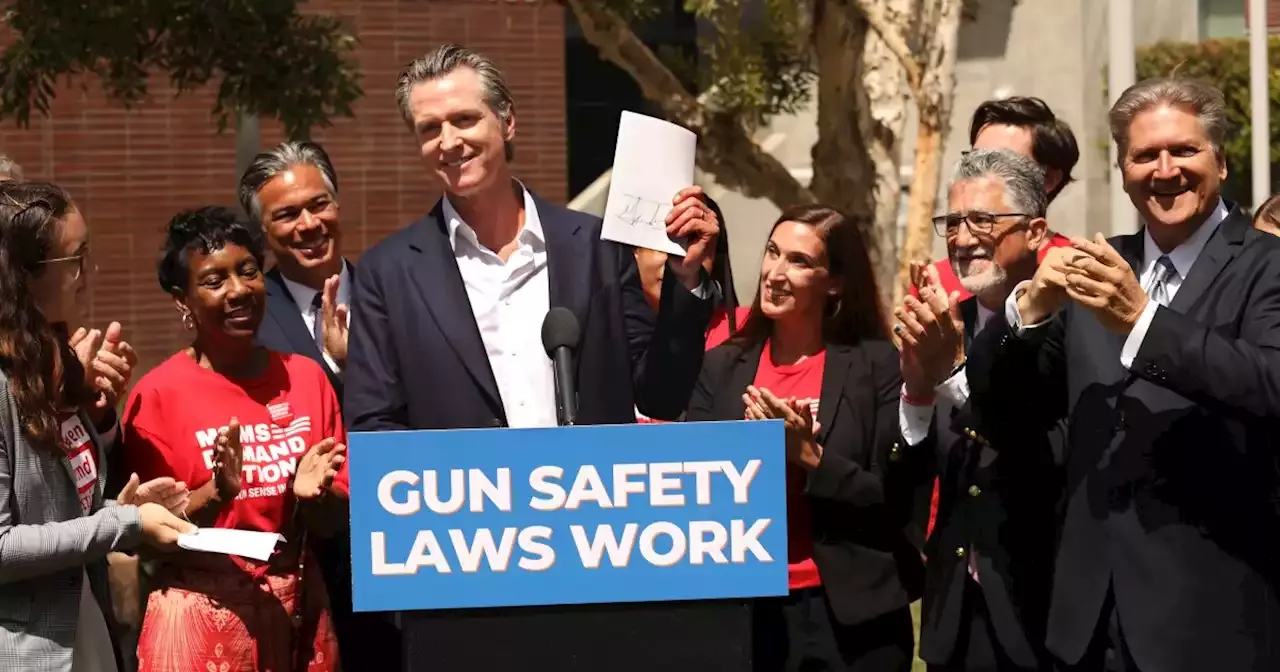Op-Ed: Is California's new gun law, modeled after the Texas abortion law, constitutional? (via latimesopinion)
by Gov. Gavin Newsom, seems to confuse two important questions: How can the law be challenged in court and, once challenged, is it constitutional?, authored by Sen. Bob Hertzberg , authorizes private citizens to file civil suits against gun makers and sellers in three circumstances. First, it focuses on “ghost guns,” firearms lacking serial numbers required by law, and allows a suit for $10,000 per weapon for anyone who manufactures, distributes, imports, transports or sells such weapons.
But that does not mean that such a law cannot be challenged in court. Someone who is sued under the law can argue as a defense that it is unconstitutional. Also, there can be suits in state courts to have the law declared unconstitutional and enjoined. The limits on litigation against state officials that apply in federal court do not apply in state courts. Indeed, the Supreme Court explicitly recognized these avenues for challenge in its December decision.
Courts will need to consider whether each of the three parts of the new California law meets this test and is a type of regulation that has been historically permitted. The difficulty, of course, is that neither the weapons involved nor the regulations created by the law existed in 1791, when the 2nd Amendment was adopted, or in 1868, when the 14th Amendment was ratified.was not adopted until 1934, the colonies began regulating firearms before the United States was formed.
Ironically, under Thomas’ decision, the provision prohibiting the sale or distribution of firearms to those under age 21 could be in trouble. This regulation should clearly be constitutional. In fact, under current federal law, licensed dealers cannot sell or deliver handguns to individuals under age 21 or long guns such as shotguns and rifles to those under age 18. But it is uncertain whether the courts will find a historical basis for this age restriction.
